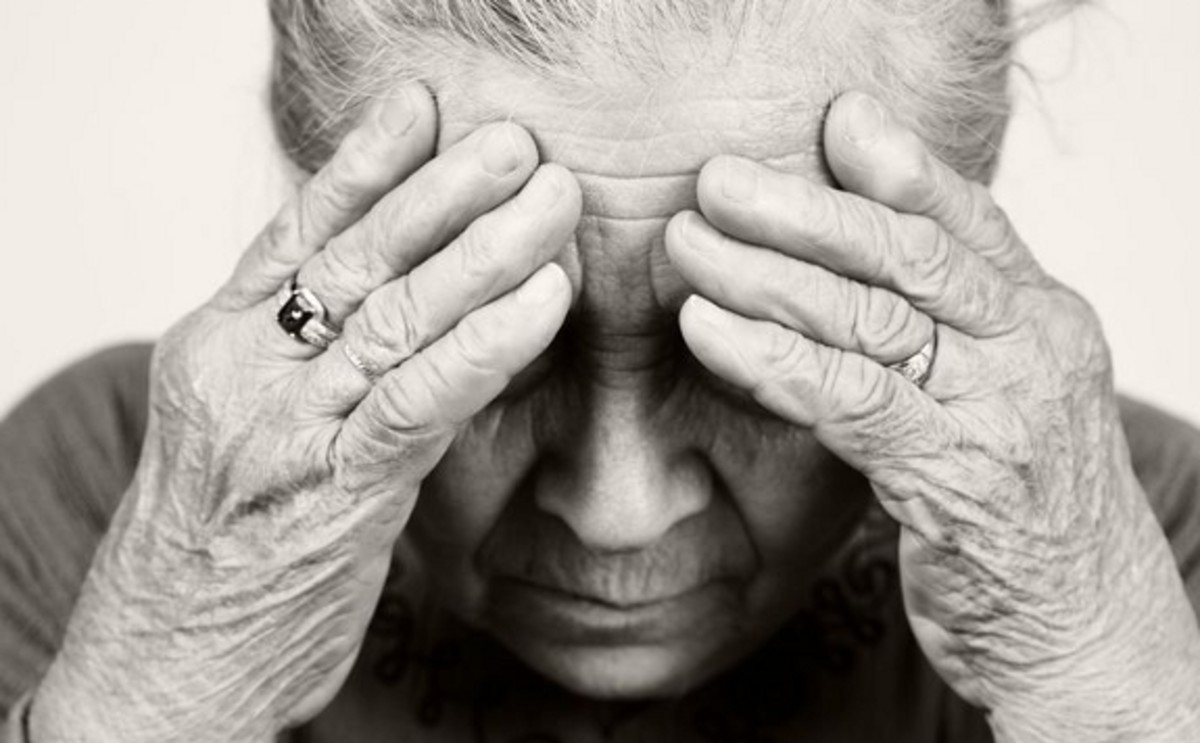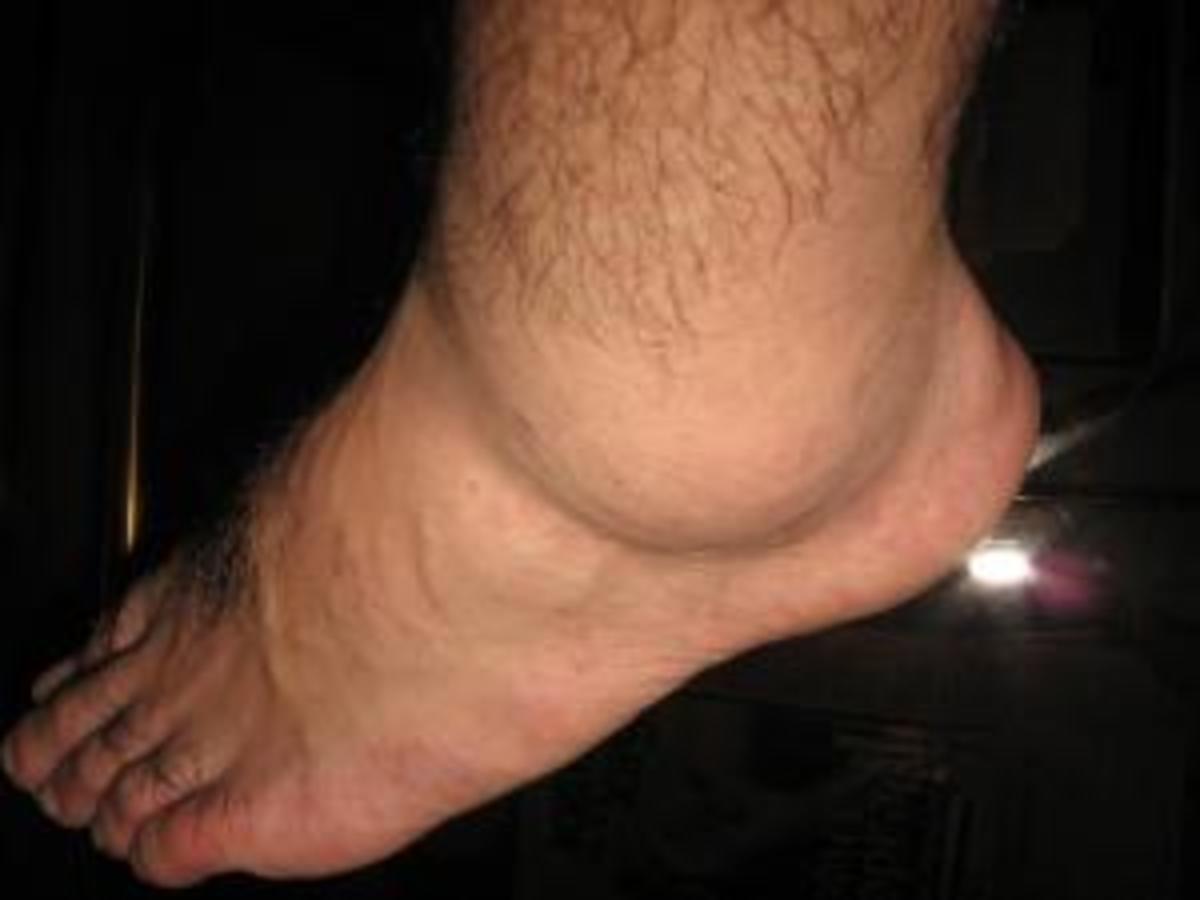Caregiver Chronicles: Three Important Must-Have Documents

Whether by default or voluntary choice, when you become the primary caregiver of a physically or mentally impaired loved one, there are three important ‘must-have’ legal documents to have on hand. We never know what life-altering health challenges await us or when we’ll face one, and since tomorrow is not promised, it’s best to have these forms completed before your loved one becomes incapacitated or worse. Therefore, take heart, be courageous, discuss these sensitive matters, and fill-out these documents sooner than later.
Health Care Proxy
- Health Care Proxy – This form authorizes any trusted family member or close friend, who is age 18 or older, to make health care decisions when the patient can’t; and helps them ensure that health care providers follow the patient’s wishes. The health care proxy also allows for optional: alternate agent if you’re unable, unwilling or unavailable to act; documentation of the patient’s medical wishes, limitations, and instructions; and organ or tissue donation.
The Health Care Proxy must be signed by two witnesses who are 18-years of age or older and cannot be the health care agent or alternate. This form does not need to be notarized.
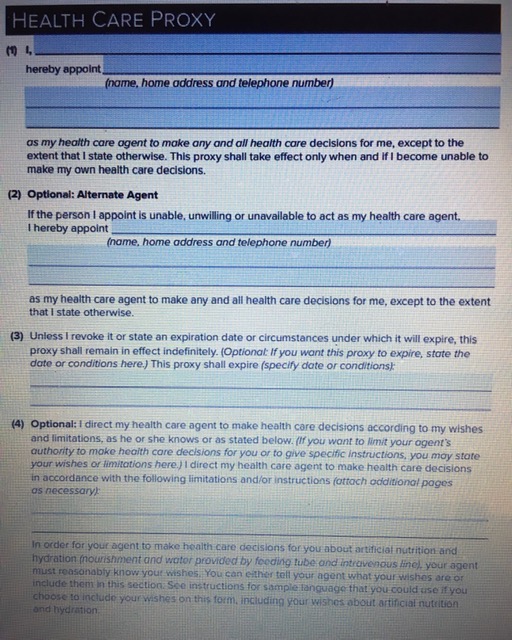
Medical Orders for Life-Sustaining Treatment
- Medical Orders for Life-Sustaining Treatment (MOLST) – The MOLST form is one way of documenting a patient's treatment preferences concerning life-sustaining treatment – providers may choose to use other documents. However, under State law, the MOLST form is the only authorized form in New York State for documenting both nonhospital Do Not Resuscitate (DNR) and Do Not Intubate (DNI) orders. Also, it is beneficial to patients and providers as it provides specific medical instructions and is recognized and used in a variety of health care settings.
The MOLST form is to be signed by the patient or health care proxy and a physician or nurse practitioner, be reviewed from time to time, and be printed on bright 'pulsar” pink, heavy stock paper. This form does not need to be notarized.
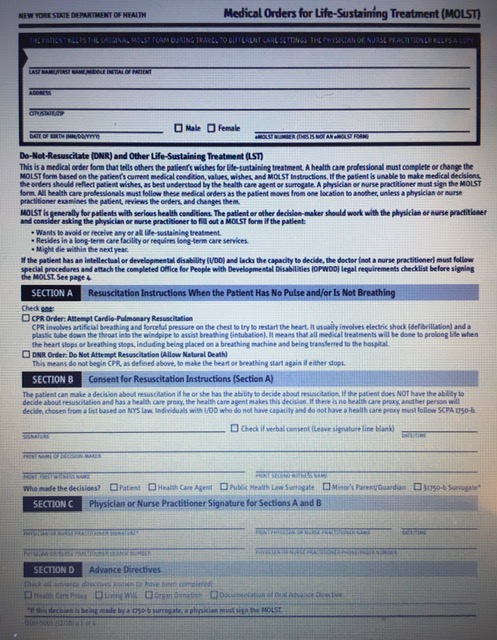
Power of Attorney
- Power of Attorney – A Power of Attorney (POA) is a state-specific written authorization to act on another’s behalf in legal matters. The person creating a Power of Attorney is known as the “principal” and the person authorized to act is called the “agent.” A Power of Attorney can be general, giving the agent the authority to conduct any type of business on behalf of the principal, or specific, and limited to the transactions expressly outlined in the document.
A Durable POA is the most common type and allows the agent to manage the principal’s finances if they become incapable or unable to do it for any reason. The Durable POA is to be signed by the principal, agent, two witnesses, and a notary.
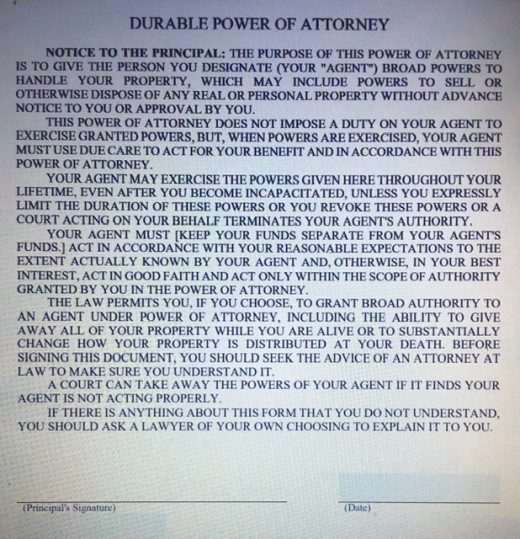
The Health Care Proxy, MOLST, Durable POA, as well as a Living will are all forms of Advanced Directives that ensure adherence to a person's wishes regarding medical treatment should the person be unable to communicate them to a doctor. Some of these legally binding documents incorporate components of the other and should be discussed with your loved one, if possible, and a health care professional. Whenever mom had to go to the hospital or been enrolled in a health plan or with a home care agency, I’ve had to produce a copy of the health care proxy and MOLST I keep a digital and hard copy of all three forms on hand.
As caregivers, we should always hope for the best and prepare for the worst or the inevitable. Manage the healthcare of your loved ones more efficiently with the three important must-have documents discussed in this article.
NOTE: I am not a legal or medical professional and am only providing information from my experiences for consideration and investigation in your situation.
Be blessed,
Jo Anne Meekins
Inspired 4 U

This content is accurate and true to the best of the author’s knowledge and is not meant to substitute for formal and individualized advice from a qualified professional.
© 2020 Jo Anne Meekins

